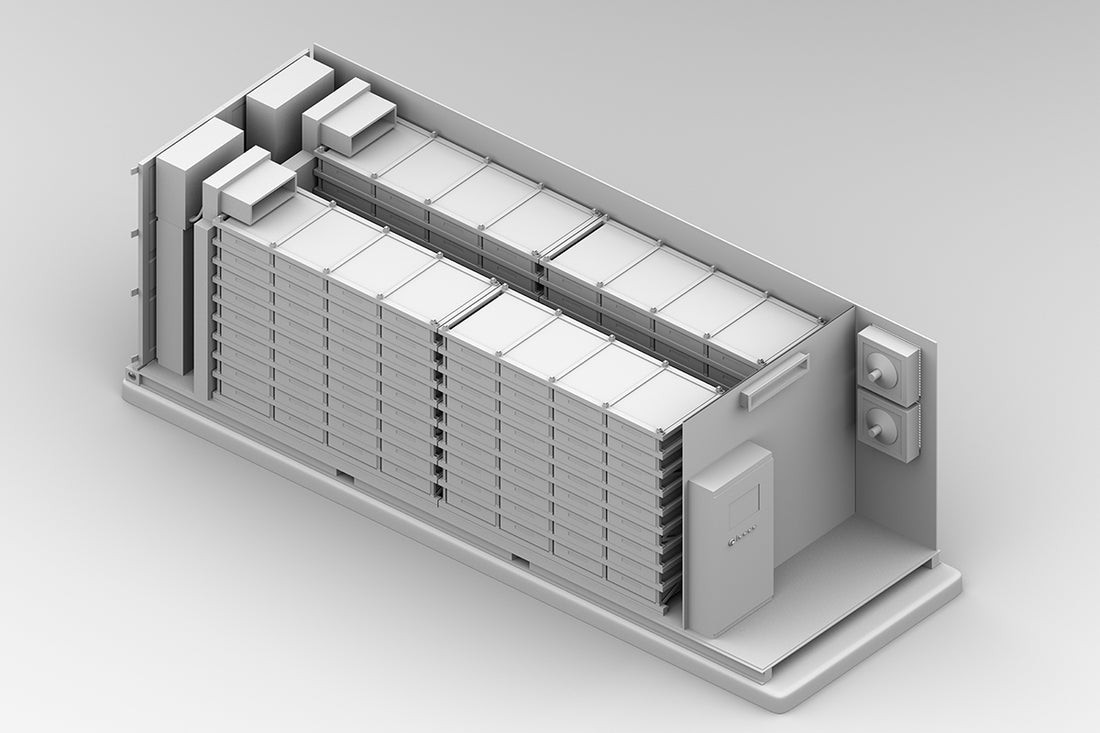
Understanding Battery Management Systems (BMS) and Their Role in Energy Storage
Share
As the adoption of energy storage systems continues to rise, the role of Battery Management Systems (BMS) has become increasingly crucial. A BMS is an essential component of any battery-powered energy storage system, ensuring that the batteries operate safely, efficiently, and reliably. In this blog post, we'll delve into what a BMS is, how it works, and why it plays a vital role in the performance and longevity of energy storage systems.
What is a Battery Management System (BMS)?
A Battery Management System (BMS) is an electronic system that manages and monitors the performance of rechargeable batteries. It is responsible for safeguarding the battery cells from operating outside their safe limits, thereby ensuring the longevity and safety of the entire energy storage system. A BMS typically consists of hardware and software components that work together to monitor and control various aspects of battery operation.
How Does a BMS Work?
A BMS performs several critical functions that are essential for the safe and efficient operation of a battery system. These functions include:
1. Monitoring Battery Parameters
The BMS continuously monitors key battery parameters, such as voltage, current, temperature, and state of charge (SOC). By keeping track of these parameters, the BMS ensures that the battery operates within its safe limits, preventing damage and potential safety hazards.
2. Balancing Cells
In a multi-cell battery pack, it’s common for individual cells to become imbalanced over time, meaning that some cells may charge or discharge faster than others. This imbalance can lead to reduced battery capacity and efficiency. The BMS addresses this issue by performing cell balancing, which equalizes the charge levels across all cells in the battery pack, ensuring uniform performance and maximizing the overall capacity.
3. Protecting Against Overcharge and Over-discharge
Overcharging and over-discharging are two of the most common causes of battery damage. Overcharging can lead to excessive heat and pressure buildup, while over-discharging can cause a battery to lose capacity or fail entirely. The BMS prevents these conditions by disconnecting the battery from the load or charger when it reaches its maximum or minimum voltage thresholds.
4. Managing Temperature
Temperature plays a significant role in battery performance and safety. Extreme temperatures, whether hot or cold, can degrade battery cells and lead to safety issues. The BMS monitors the temperature of the battery and ensures that it operates within the optimal temperature range. If the battery temperature exceeds safe limits, the BMS can take corrective actions, such as reducing the charging or discharging rate or shutting down the system to prevent damage.
5. Providing Communication and Reporting
The BMS often includes communication interfaces that allow it to interact with other components of the energy storage system, such as inverters and chargers. It can also provide real-time data on the battery's status, which can be used for monitoring, diagnostics, and optimizing the performance of the energy storage system. This data can be communicated to external systems via CAN, RS485, or other communication protocols.
Why is a BMS Crucial for Energy Storage Systems?
The importance of a BMS in energy storage systems cannot be overstated. Here’s why:
1. Ensuring Safety
Safety is the top priority when it comes to energy storage systems, especially those that use high-capacity batteries. A BMS plays a critical role in preventing dangerous conditions, such as thermal runaway, overcharging, and short circuits. By continuously monitoring and controlling the battery, the BMS helps prevent accidents and ensures the safe operation of the energy storage system.
2. Enhancing Battery Life
A BMS helps extend the lifespan of batteries by preventing conditions that could lead to premature aging or damage. By managing charge and discharge cycles, balancing cells, and controlling temperature, the BMS ensures that the batteries operate within their optimal parameters, which helps maintain their capacity and efficiency over time.
3. Maximizing Efficiency
Efficiency is key to getting the most out of an energy storage system. A BMS optimizes the performance of the battery pack by ensuring that all cells are balanced and that the system operates at peak efficiency. This not only maximizes the energy output but also reduces the total cost of ownership by improving the overall efficiency of the system.
4. Providing Data for Optimization
The data provided by the BMS is invaluable for monitoring the performance of the energy storage system. This data can be used to identify trends, diagnose issues, and make informed decisions about how to optimize the system for better performance. Whether you’re managing a small residential system or a large commercial installation, the insights provided by the BMS can help you get the most out of your energy storage investment.
Conclusion
Battery Management Systems (BMS) are the backbone of modern energy storage systems, ensuring that they operate safely, efficiently, and reliably. By monitoring and controlling critical battery parameters, a BMS protects the battery from damage, extends its lifespan, and optimizes its performance. As the demand for energy storage continues to grow, the role of BMS will become even more crucial in enabling safe and efficient energy solutions.
At MasonPower, we integrate advanced BMS technology into all our energy storage products, ensuring that you get the best performance and reliability from your system. Whether you're looking to power your home, business, or industrial facility, our solutions are designed with safety and efficiency in mind. Contact us today to learn more about how our BMS-equipped energy storage systems can meet your needs.
